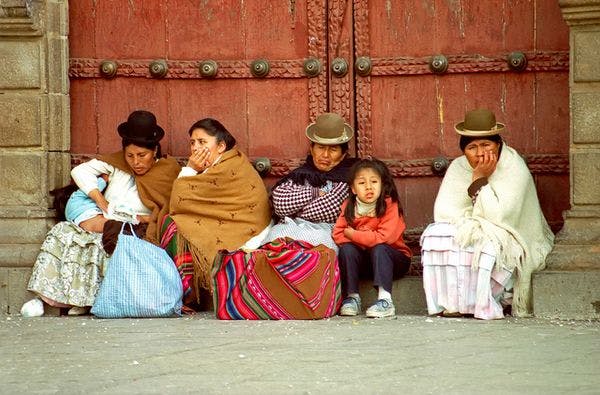Gender-based violence prevention among women under risk of cross-cutting violence and discrimination
An international conference took place inBishkek on June 5 that focused on prevention of gender-based violence (GBV) among women who use drugs and women, who engage in sex work and exposed to multiple cross-cutting forms of discrimination. On DropBox you can find the English and Russian versions of all presentations, as well as a set of pictures, most of them taken by Sahira Nazarova of the Osh-based Positive Dialogue Foundation.
The epidemic of violence against these key affected populations of women is global and underscores the critical need for GBV prevention policies and program. The Kyrgyz-based civil activists and professional social workers implemented the WINGS of Hope program after it was adapted collaboratively with women representing these communities. The program is based on a Screening, Brief Intervention, and Referral to Treatment (SBIRT) model of GBV prevention. Its core components include psycho-education on IPV/GBV, an IPV/GBV victimization screening tool, as well as social, medical and legal support enhancement, service linkage, safety planning, goal setting, and gender-specific HIV testing and counseling. It was initially designed at Columbia University School of Social Work to be delivered in harm reduction settings to reach women who use drugs and women who engage in sex work who are at risk for GBV.
In Kyrgyzstan, the Global Research Institute (GLORI) Foundation in partnership with non-government agencies Asteria, Podruga, Positive Dialogue, Plus Center, Socium and Chance Crisis Center with grant support from the Open Society Foundations and Soros Foundation-Kyrgyzstan successfully piloted the WINGS of Hope project in 2013-2014 and 2016. During three years, the project helped more than 200 women who use drugs, who are also engaged in sex work, and exposed to multiple cross-cutting forms of discrimination.
This international conference explored the challenges and lessons learned from implementing WINGS in resource constrained harm reduction programs in Kyrgyzstan and other countries with the goal of identifying effective strategic planning, designing and implementing the gender-based violence programs.
Following the UN CEDAW recommendations, GLORI Foundation together with project partners work on disseminating the WINGS of Hope’s findings and experience, both in Kyrgyzstan and internationally. Beginning this year, as a result of the international partnership, they have been providing technical support to non-government organizations adapting and piloting the Pankh (stands for Wings in Marathi language) in India.
The Conference moderators were Danil Nikitin of GLORI Foundation and Irena Ermolaeva of Asteria Foundation. The Asteria was founded in 2006 by group of former women drug users. Now Asteria is unique in its preparedness to provide women clients with the whole package of services including temporary housing, food, medication and hygienic means, social navigation, harm reduction-oriented education, legal support, referral services and self-support groups. In addition to the above, Asteria initiates advocacy campaigns aimed at improving the lives of women who use drugs, contributes to development of state programs for key affected populations of women, and works closely with medical professionals, police departments, and crisis centers.
The key presentations were given by Dr Louisa Gilbert, Associate Professor working at Columbia University School of Social Work Social Intervention Group, Ms Pemu Doma Bhutia, Senior Technical advisor of Alliance Regional Technical Support Hub of South Asia, Dr Larisa Bashmakova, expert on HIV, Dr Tatiana Galako, President for the Kyrgyz Psychiatry Association, Chair, Department of Psychiatry, Psychotherapy and Narcology at Kyrgyz State Medical Academy, Associate Professor with Department of Medical Psychology, Psychiatry and Psychotherapy at Kyrgyz-Russian Slav University, Ms Gulsara Alieva, retired police colonel and expert on collaboration between civil society and law enforcement, and Dr Assel Terlikbaeva, Regional Director at Global Health Research Center of Central Asia in Kazakhstan.
The presenters and invited guests highlighted that in their countries women who use drugs and women who engage in sex work constitute a close group whose majority is exposed to various forms of discrimination, live in poverty and are not sufficiently covered by government-run medical or social services that they therefore receive through selected NGOs experienced in such work. Similarly to Kyrgyzstan, they are also exposed to a wide range of structural risk factors that include unjustified detention, beating, money extortion, sexual violence and other violations of rights that are not known to mainstream population. Given this unfavorable context, the WINGS of Hope is definitely an accomplishment in fighting the GBV epidemic among key affected populations of women that Kyrgyzstan has to be proud about.
As Aibek Mukambetov and Ilim Sadykov from the Public Health Program at Soros Foundation-Kyrgyzstan mentioned, we have a lot to do yet, and are open to keep sharing the experience with our foreign colleagues and provide them with technical and consultation support.
Click here for more information.
Keep up-to-date with drug policy developments by subscribing to the IDPC Monthly Alert.
Thumbnail: Bolivian women CC Dennis Jarvis
